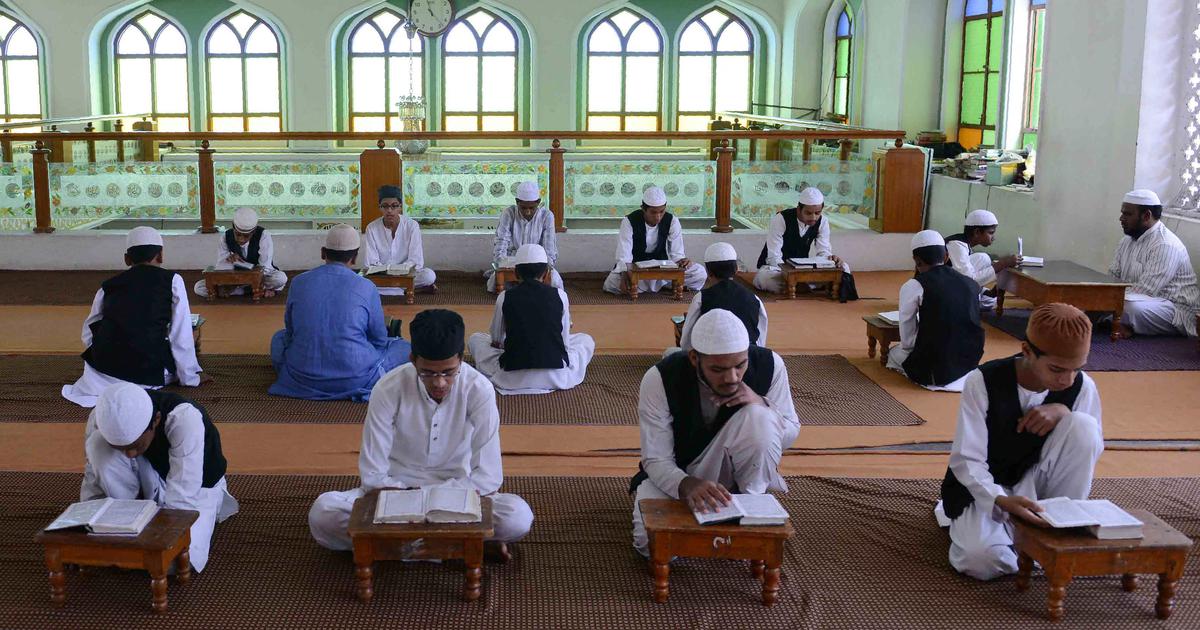Supreme Court stays NCPCR’s directive to revoke recognition of madrasas not complying with RTE
The Centre had instructed the states and Union territories to act according to the directives of the National Commission for Protection of Child Rights.

The Supreme Court on Monday stayed directives issued by the National Commission for Protection of Child Rights that asked the Centre and state governments to revoke recognition of madrasas that allegedly failed to comply with the 2009 Right to Education Act, Live Law reported.
A bench of Chief Justice DY Chandrachud, Justices JB Pardiwala and Manoj Misra issued an interim order while hearing a writ petition by Muslim organisation Jamiat Ulema-I-Hind challenging the directive of the child rights body.
On June 7, the National Commission for Protection of Child Rights asked the chief secretary of Uttar Pradesh to withdraw the recognition of madrasas that did not comply with the Right to Education Act.
On June 25, the body urged the Union education ministry to instruct the states and Union territories to inspect the madrasas that have the Unified District Information System for Education code.
The system is a government database about schools in India.
The child rights body recommended revoking recognition of non-compliant madrasas.
It also requested a separate Unified District Information System for Education category for madrassas, including those that are recognised, unrecognised and unmapped, instead of extending the current system.
A day later, the Uttar Pradesh chief secretary had directed district collectors to investigate government-funded madrasas that had admitted non-Muslim students and ensure immediate admission of the children in recognised schools.
The Tripura government issued a similar direction on August 28.
On July 10, the Union government instructed the states and Union territories to act according to the directions of the National Commission for Protection of Child Rights.
Jamiat Ulema-I-Hind, an organisation of Muslim clerics, had challenged the directive in the Supreme Court, contending that it infringed on the rights of religious minorities to pursue education under Article 30 of the Constitution. The provision allows minorities to establish and administer their own educational institutions.
On Monday, the Supreme Court said that the communications issued by the child rights body, along with related directives from the Uttar Pradesh and Tripura governments, should not be acted upon while the matter was being heard.
In April, the Supreme Court stayed the Allahabad High Court’s ruling the 2004 Uttar Pradesh Board of Madarsa Education Act as unconstitutional.
The High Court had in March directed the Uttar Pradesh government to accommodate students studying in Islamic schools in other educational institutions.
The Supreme Court, however, observed that the High Court’s directions would impact the future course of education of nearly 17 lakh students.
The Uttar Pradesh Board of Madarsa Education Act provides for madrasas in Uttar Pradesh to operate under the aegis of the state minority welfare department, unlike other minority educational institutes that operate under the education department.
In September, the National Commission for Protection of Child Rights told the Supreme Court that madrasas were “unsuitable or unfit” places for children to receive “proper education”.
The child rights body also claimed that madrasas did not qualify as “schools” under the Right to Education Act.
On October 11, Priyank Kanoongo, the chairperson of the child rights body, wrote to the states and Union territories asking them to stop funding madrasas. All children studying in madrasas should be enrolled in schools recognised under the Right to Education Act, he had said.
The recommendations in Kanoongo’s letter were based on a report prepared by the commission to assess the role of madrasas in allegedly violating children’s right to education.
Kanoongo had subsequently clarified that he had not called for the closing down of madrasas but only suggested stopping the state funding they receive as the institutions were allegedly depriving poorer Muslim children of education.
He said that it was the government’s duty to ensure that children receive standard education and called for integrating madrasas with regular schools.









